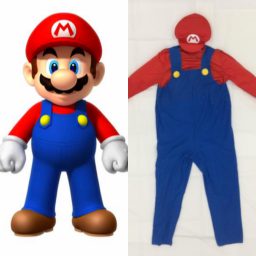On September 27 2018, Tokyo District Court ruled in favor of the claim by Nintendo against a company which had lent costumes of Nintendo’s game characters such as Mario to make its customers ride a go-kart on public road under the name of “MariCar”. The defendant appealed to IP High Court the next day, September 28.
Here is the summary of the decision.
– Prohibit the use of marks such as “MariCar”
The court recognized that a Japanese expression for “MariCar” (i.e. “マリカー”) is a well-known mark as an abbreviated mark for Nintendo’s game “Mario Kart”, and issued an injunction against the use of marks “マリカー”, “MariCar” and two other expressions, in accordance with Unfair Competition Prevention Act. However, the court didn’t recognize that it is also well known among people who don’t read Japanese, thus it didn’t issue injunction against the use of these marks for websites or flyers which are written only in foreign languages.
By the way, the defendant made a plea for ownership of a trademark for the same Japanese expression “マリカー”. However, the court recognized that this mark had been well known for the abbreviated mark for “Mario Kart”, before the defendant filed the trademark application, thus it didn’t accept the plea due to abuse of right.
– Prohibit the use of costumes of Mario, Luigi, Yoshi, and Koopa (Bowser)
The court recognized that these costumes are well known as indications of Nintendo’s goods or business, and issued injunction against the use of them. The picture quoted from the decision shows Mario and the costume used by the defendant.
– Prohibit the use of four domain names including “maricar”
The court didn’t issue injunction against the use of them for websites or flyers which are written in foreign languages.
– Order to pay 10 million yen (about USD 91,000) in compensation
The court approved the full amount that Nintendo had lodged.
In this case, Nintendo also sought an injunction based on copyright infringement, but the court didn’t accept it. The court judged that Nintendo failed to prove the necessity of injunction, considering that Nintendo didn’t identify specific activities to be prohibited, in this case where the defendant had not made painterly copies of Nintendo’s painting works.
From my perspective, characters with economic value may be better protected by economic laws such as Unfair Competition Prevention Act, rather than copyright law, due to their nature, though non-well-known characters can’t be protected by the current Unfair Competition Prevention Act. Anyway, it should not be allowed for other companies to commercially use the characters built up by corporate efforts without permission.
お読みいただきありがとうございました。この記事を気に入ってくださった方は、お友達にメールで送ったり、ソーシャルメディアでシェアしたりして、この記事が広まるようにしてくださると嬉しいです。ありがとうございます。
[UPDATE] On May 30 2019, IP High Court rendered an interlocutory judgement in favor of Nintendo. According to the プレスリリース by Nintendo, the court ruled that the defendant’s use of marks “maricar” etc.(including the use on websites which are written only in foreign languages) is regarded as an act of unfair competition. Then, the court continues the hearing for damages.
[Update] On January 29 2020, IP High Court handed down a final judgement with the Nintendo’s perfect victory. The court ordered to pay damage of JPY 50 million (about USD 455,000), which was the full amount that Nintendo had lodged, and also issued an injunction against such acts of unfair competition, according to the Nintendo’s press release.

